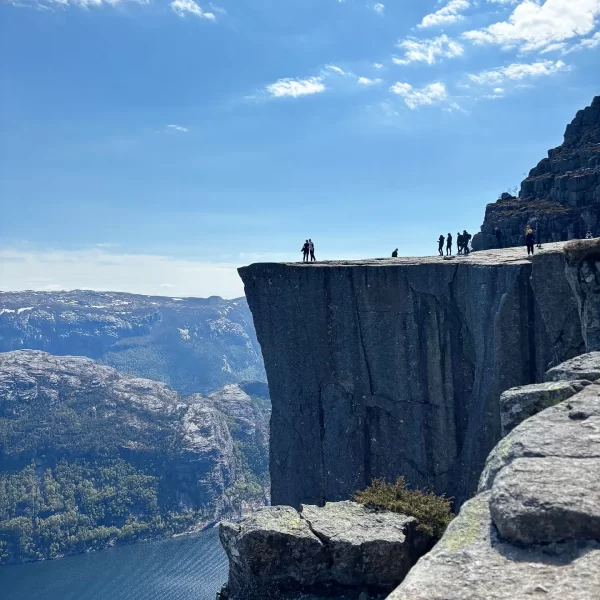I’m currently in the midst of the exams for the second semester. Meaning that the first year has almost come to a close. Time to reflect, highlighting the good, the challenging, and the unique aspects of studying Risk Analysis in Stavanger.
Risk Science
One of the strongest aspects of the program has been the focus on the fundamental and technical parts of risk and risk management. The first course Risk 505 provides a very good foundation for anyone working with risk management. Whether this is economic, safety or security. By understanding the different ‘schools’ of risk management. One is well-equipped to discuss different aspects of risks and understand viewpoints from different schools of thought. This is for instance important when discussing the need to invest in risk-reducing measures, where economists might clash with safety specialists. The program is deeply rooted in the needs of the oil industry, which is a significant sector in Norway. This has resulted in a curriculum rich in topics like system reliability, economic analysis, and engineering principles.
Social Sciences and Methodology
Some areas could use improvement, particularly the social science aspects of risk management, such as the human factor in safety management, which receives little to no attention. While multiple lectures cover risk communication, much of which is a repetition from the first course.
The program’s approach to research methodologies also needs strengthening. The study welcomes students from all (applied) science bachelor backgrounds, which is good, but more focus should be given to research methodology. How can someone write a master’s thesis with minimal understanding of research methods? In the single methodology course given, we barely scratched the surface of various methods such as ethnography, case studies, content analysis, and quantitative research. It would be better to offer an in-depth course on one of these topics to equip students with the necessary research skills to write a thesis. I might be a bit biased since my previous university, the University of Groningen, emphasized research methods and social science, particularly statistics. But most of my classmates agree that this needs improvement.
Student Life
Student life is good! The student association FRISK is incredibly active, organising numerous social events, company meetings and access to networking events. The onboarding process from UIS was also smooth and the housing on campus is well maintained and affordable. If you are all about the parties, however, don’t consider Norway. It’s very expensive and as a consequence, there is a lot of pre-drinking involved, security is very strict and night-life is limited.
Administrative struggles
Navigating the student administration system has been a bad experience, particularly regarding exams. The formality and procedures around exams and grading in Norway are quite different from what I was used to in the Netherlands. The anonymity of candidate numbers and the formal appeal processes are cumbersome. Teachers will warn students not to appeal their exam results, ‘because the second assessor will be stricter‘. And the second assessment will be final. These are blatant threats which are very bad for the student environment. In the Netherlands, it’s more common to discuss grades directly with teachers, which I find to be a more straightforward and motivating approach. I was also denied access to a resit because I hadn’t entered the first exam. The first exam overlapped with one of my curricular courses, preventing me from participating. This does not foster a learning environment, and I would discourage anyone from taking an extracurricular course at UIS under these circumstances.
Norwegian Culture and Nature
Living in Norway has been a joy, especially because of the natural beauty of the West Coast. There are many outdoor activities to enjoy, like surfing, mountain biking, hiking, climbing, kayaking, and camping, which I’ve enjoyed on many occasions.
Concluding
All in all, my first year at UIS has been very good. I’ve gained a solid technical foundation in risk analysis, made valuable industry connections, and experienced the culture and nature of Norway. While there are areas for improvement in the program, the overall experience has been positive.
As I look forward to the summer holidays, I’m excited about what the next year will bring. I know for sure that I will be spending some time on Svalbard, which I am very much looking forward to.
Have a great holiday!


Leave a Reply